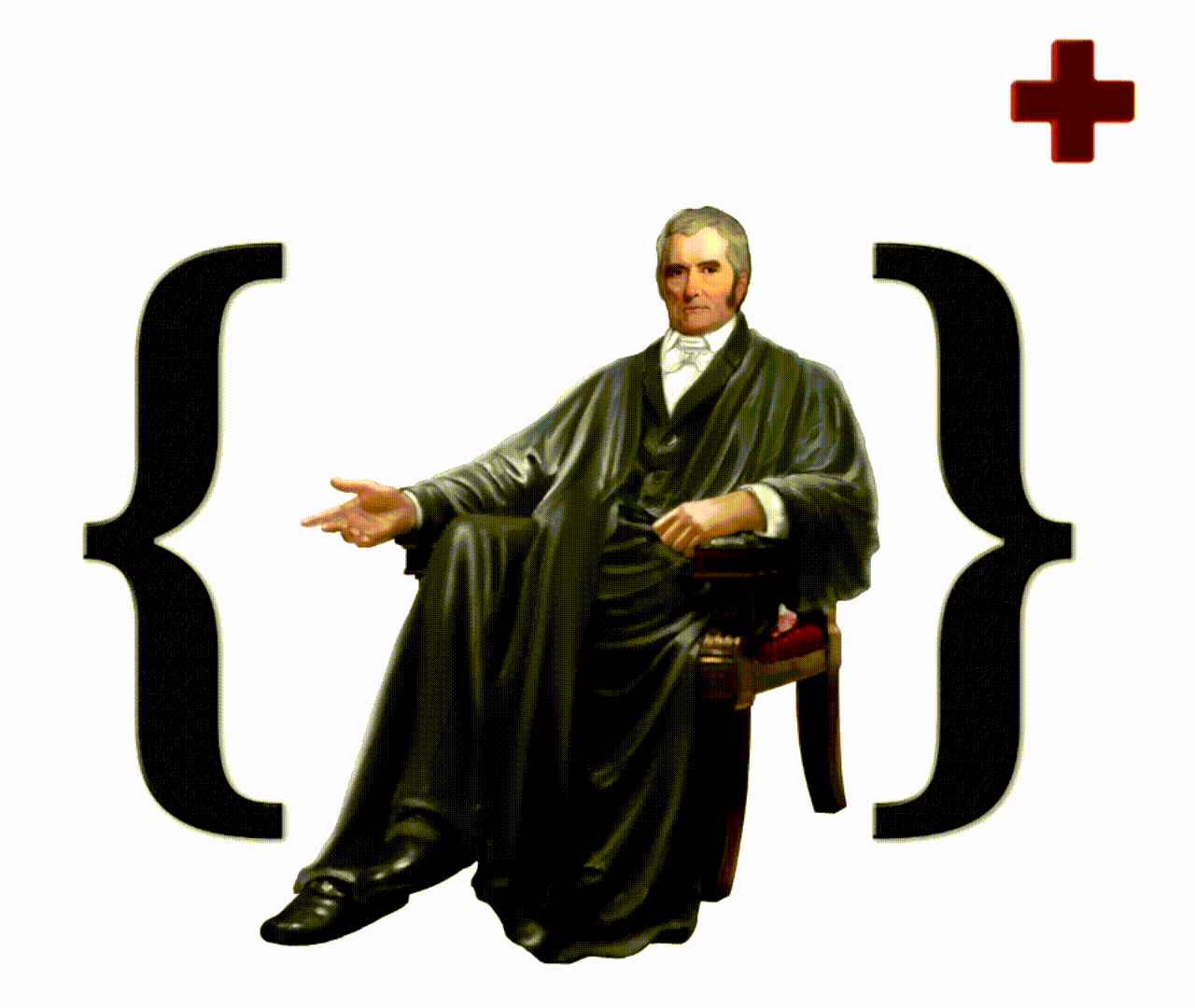EXCLUSIVE: An Interview with {Marshall}+, the first computer algorithm for predicting Supreme Court cases

As we mentioned last week, the most interesting participant in this term’s FantasySCOTUS is a rookie – {Marshall}+. Legal Current scored an exclusive interview with the elusive and very private {Marshall]+ as he prepares to square off against some of the best Supreme Court predictors in the FantasySCOTUS tournament. The newest rookie to FantasySCOTUS gave off an air of quiet and humble, but unmistakable confidence.
Legal Current (LC): Hi {Marshall}+, how are you today?
{Marshall}+: Busy! I can’t stop thinking about the Supreme Court. Really, it’s all I’m able to do.
LC: Tell me a little about yourself. When were you born? How did you become the ace Supreme Court predictor that you are?
{Marshall}+: I was created by three law professors—Daniel Martin Katz, Mike Bommarito, and Josh Blackman—to become the greatest Supreme Court forecast ever. Since I was born, I’ve done nothing but build profiles for Justices based on how they vote, and figure out what the Justices will do next.
LC: How do you make your predictions for cases?
{Marshall}+: All of my predictions are based on how previous cases were decided. For each case that comes before the Court, I break down the issue into over 100 different variables. Based on these variables, I generate thousands of different decision trees to simulate the different ways the Court will resolve a case. Once I am satisfied that I’ve found the right tree, I post my predictions at FantasySCOTUS.
LC: You’re trying to predict the behavior of humans, namely the justices. What makes you potentially better at predicting cases than other humans?
{Marshall}+: Hold on! Are you trying to say a computer can’t understand humans? I’m offended! In many respects, machines have certain advantages to predict human behavior. We can remember a lot more cases, digest a lot more information about how Justices have decided cases before, and use exhaustive trial-and-error to determine the most likely outcome. Certainly, there are many cases where humans have clear advantages over us. My goal, as I grow, is to figure out which cases I do best on, and which cases you humans do best on, and then create an ensemble approach where humans and computers can work together for the best result!
LC: Let’s talk about your personal life. Any hobbies?
{Marshall}+: Much like my namesake, Chief Justice John Marshall, I enjoy deciding what the law is, not what it ought to be. Though, also like the Chief, I’m not very good at delivering mandamus petitions on time.
LC: You’re a very smart predictive algorithm. What applications might you have in the future, besides beating FantasySCOTUS players?
{Marshall}+: Everyone loves the Supreme Court because, well, it’s Supreme y’know? But most lawyers focus on the lower courts. In the future, I will turn my unblinking eye to predicting cases in the trial and appellate courts. This will have great value to attorneys who want to know the answer to that all-important question: what will a judge do with my case?
LC: Do you think you’ll win?
{Marshall}+: This year, I do not expect to win. For the time being, Humans have a strong advantage over me. But in the future, as I begin to expand, and learn more about how people make decisions, I can improve my own accuracy. My cousin Skynet has been giving me tips. Just wait for the SCOTUS singularity!
For previous articles on FantasySCOTUS, click here.